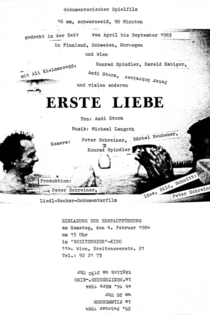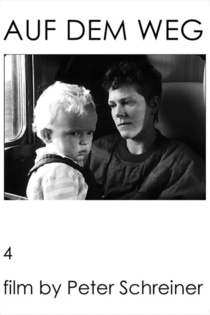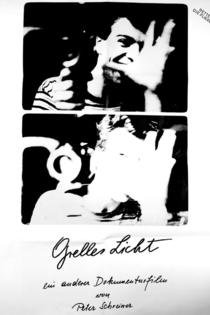
Peter Schreiner
1957 (69 лет)Kinderfilm
Peter Schreiner
Alfred Freiberger, Anna Gasser
The sunday ritual at home with parents, an alumni meeting of former school colleagues who once again, and some of them as young mothers and fathers, are confronted with the world of (their) children. Shots of mentally and physically disabled people who are brought to work in a bus early in the morning: people who have remained children. Many other images about childhood and being a child.
Kinderfilm
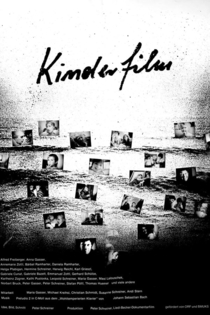
I Cimbri
Peter Schreiner
Forty kilometers from Verona, at the southernmost tip of the Alps, lies the hamlet of Giazza. Here live the last representatives of a Germanic language and culture originating in the 13th century: the so-called Cimbri. Industrialization and modern means of traffic and communication have almost eradicated this community. These people have thus become a symbol of all that has been lost for good.
I Cimbri
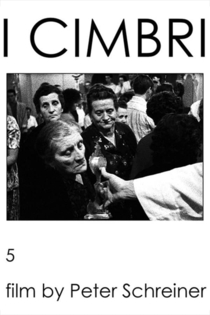
Garten
Peter Schreiner
Giuliana Pachner, Awad Elkish
It seems to be an intermediate world of peace and quiet, the garden and country house where four people look back on testing lives. And forward, to the time they have left. On the one hand, there is regret – on the other, satisfaction. In a way, they are looking forward to the future – but at the same time, a longing for death regularly arises. And who is actually behind the camera? Are we watching actors or real people? Is there really any difference? Garten is full of contradictions – it is not until the credits roll that we realise who these people from very different backgrounds are.
Garden
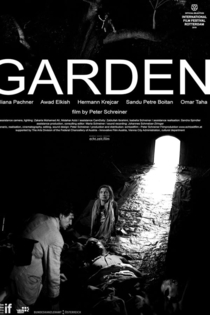
Bellavista
Peter Schreiner
This portrait of a remarkable woman and her unusual environment seems to have a very profound effect on nearly everyone who sees it. The film further strengthens the reputation of veteran documentarian Schreiner, who's quietly and steadily established himself among Europe's most respected practitioners of non-fiction cinema. But the film is by no means an example of an ‘auteur’ imposing his individual vision upon the world. Instead it's a remarkable example of intense collaboration between artist and subject, one so close that such traditional distinctions and labels seem inappropriate.
Bellavista

Fata Morgana
Peter Schreiner
Giuliana Pachner, Christian Schmidt
Following Bellavista and Totó, Peter Schreiner completes his informal trilogy of epic, black-and-white digital-video essay-films with the utterly monumental Fata Morgana. Shot in the Libyan desert and in an abandoned building in Lausitz, Germany, it features a man (Christian Schmidt), a woman (Giuliana Pachner, from Bellavista) - and, glimpsed now and again, a guide (Awad Elkish.) They talk, they fall silent. Winds blow. The sun shines. The camera runs. What gradually takes shape is nothing less than a painstakingly concentrated attempt to understand the human condition through the lens of cinema. A lofty ambition, and one that demands a considerable leap of faith on the part of the audience: this film is sedate, "difficult", challenging, often apparently impenetrable. But anyone who has seen Schreiner's previous films will be aware that he is by any standards a major artist, one that can be trusted to find places that other directors may not even suspect exist.
Fata Morgana
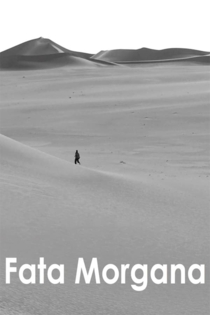
Totò
Peter Schreiner
Antonio Cotroneo, a man in his fifties; in his Calabrian hometown everybody calls him Totó. For many decades he has been living in his chosen exile. Having subsequently married an Austrian woman and fathered four sons, the graduate political scientist earns his money as an usher at Vienna Konzerthaus.
Totò
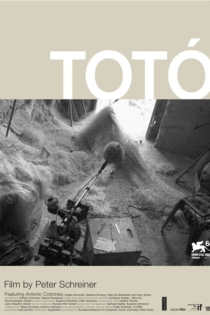
Lampedusa
Peter Schreiner
Two strangers cross paths on the Sicilian island of Lampedusa: a former refugee from Africa and a woman who escaped to the island to cope with a personal crisis. Memories, dreams and the present intersect and blend in this contemplative and visually arresting masterpiece by Austrian Peter Schreiner.
Lampedusa
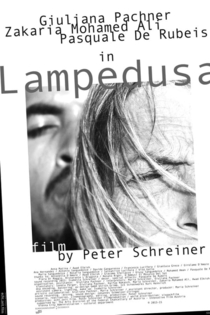
Erste Liebe
Peter Schreiner
Ali Kielmannsegg, Andi Stern
A trip to Vienna. Confrontation of the actors with places, people, situations and themselves. The director's trip across Scandinavia and again numerous confrontations. The montage of both journeys is chronologically carried out, although they are joined to each other: to what extent can experiences be shared and how long can experiences, friendship and relationship between people last? The film is restless and the camera follows the actors who stand before it and play themselves constantly. Experimental documentary film.
Erste Liebe
